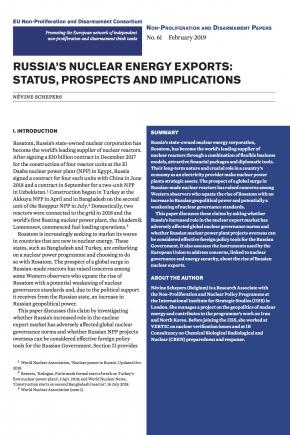Russia's Nuclear Energy Exports: Status, Prospects and Implications
Russia’s state-owned nuclear energy corporation, Rosatom, has become the world’s leading supplier of nuclear reactors through a combination of flexible business models, attractive financial packages and diplomatic tools. Their long-term nature and crucial role in a country’s economy as an electricity provider make nuclear power plants strategic assets. The prospect of a global surge in Russian-made nuclear reactors has raised concerns among Western observers who equate the rise of Rosatom with an increase in Russian geopolitical power and potentially a weakening of nuclear governance standards.
This paper discusses these claims by asking whether Russia’s increased role in the nuclear export market has adversely affected global nuclear governance norms and whether Russian nuclear power plant projects overseas can be considered effective foreign policy tools for the Russian Government. It also assesses the instruments used by the European Union to address concerns, linked to nuclear governance and energy security, about the rise of Russian nuclear exports.

